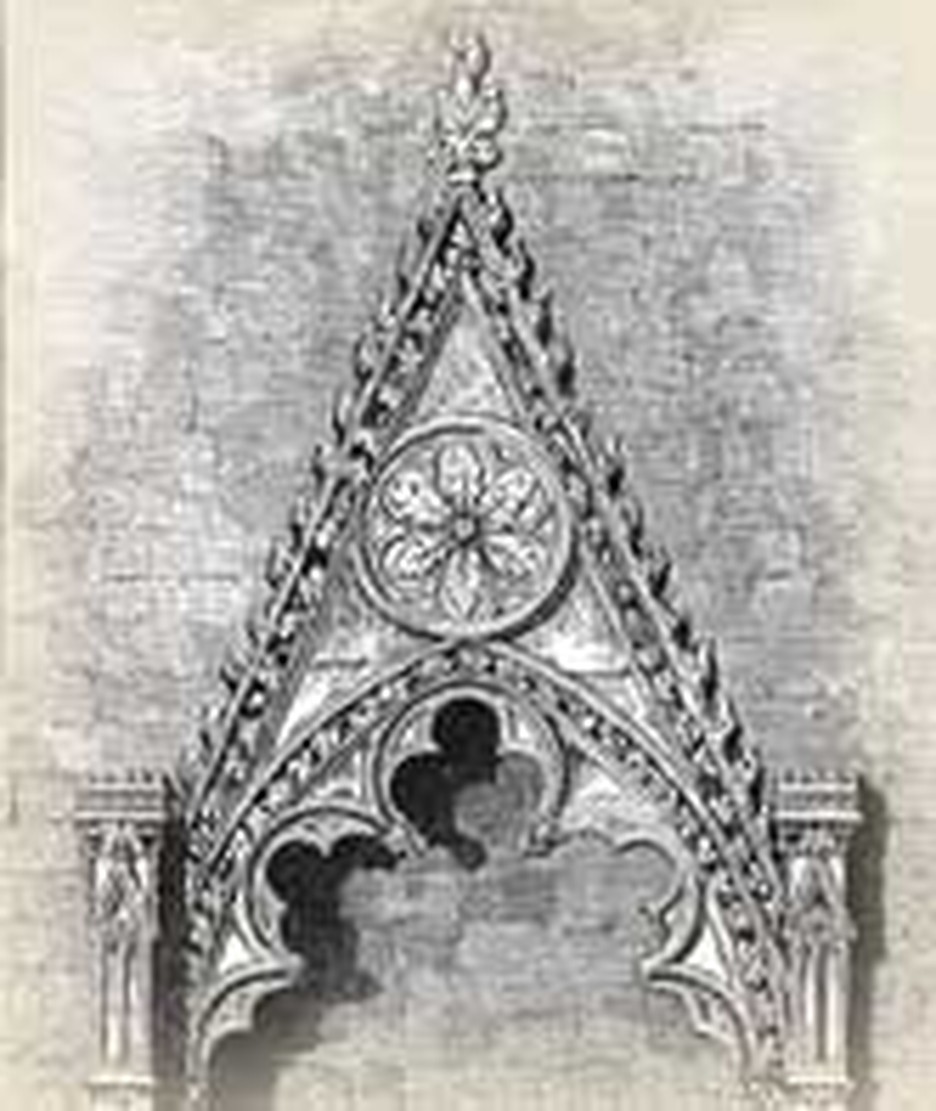
It is sad to see the mind of a great man disintegrate with age. In the case of John of Peckham, Archbishop of Canterbury, it was the more regrettable because in his prime cardinals and bishops had risen and removed their hats in his honor when he entered the lecture hall.
Born in the Surrey region early in the thirteenth century, his early education came in the priory of Lewes. While young he studied in Paris, where he defended the innovative theology of St. Thomas Aquinas. A Franciscan he lectured on theology, was provincial minister of the Franciscans, and acted as an instructor to the papal curia in Rome. Unlike many who breathed the air of Rome, Peckham ate common foods and dressed in the poorest clothes. Even as Archbishop he insisted on following the strictest Franciscan rules, such as walking rather than taking horse. Humble and sincere, he prayed and fasted assiduously.
From Canterbury he exerted his authority for reform measures, battling the practice, called plurality, of allowing churchmen to hold more than one living at a time. Plurality usually meant neglect: churchmen collected revenues while the people's needs went unmet. Non-residence also elicited his rebuke. A bishop living in Italy might draw his living from an English church he had never visited. Opposed to heretical ideas creeping into the church through the revival of ancient philosophy, John of Peckham resisted them. Twice he called local reform councils.
Peckham's efforts at reform roused strong opposition. Devout and kind, he managed somehow to rub people the wrong way, being somewhat pompous and overzealous. Although he had strenuously resisted his appointment as Archbishop, he asserted the authority of the position once he obtained it, encroaching even upon the King's rights and aggravating discontent with unannounced inspections of those under his charge.
What makes Peckham so significant? He was one of those Englishmen who were inspired by the newly translated Arabic writings of Alhazen to study the nature of light and optics. With more than average skill, he applied mathematics to the problem. He also devoted considerable thought to numbers. He was, in short, a science popularizer, who set out to unify and clarify all that was known of science. His elementary textbooks were successful in achieving his stated goal, for through them many contemporaries learned the rudiments of past thought. Even Leonardo da Vinci would read Peckham, and his books were reprinted into the 17th century.
He exemplifies those many churchmen who laid the foundation of ideas upon which modern science would be constructed. In old age Peckham's mind failed. On this day, March 20th, 1292 the Bishop of Hereford received permission to replace the grand old scholar.
Bibliography:
- Hook, Walter Farquhar, 1798-1875. Lives of the Archbishops of Canterbury. London, R. Bentley, 1865-1884.
- Kingsford, Charles Lethbridge. "John Peckham," in Dictionary of National Biography. London: Oxford University, 1968.
- Leff, Gordon. "Prophecy in the Middle Ages," in Dictionary of the History of Ideas, Vol. III, ed. by Philip P. Weiner. New York: Scribners, 1973; p. 668.
- Lindberg, David C. "John Pecham," in Dictionary of Scientific Biography, Edited by Charles Coulston Gillespie. New York: Scribner's, 1970.
- McKilliam, Annie E. A Chronicle of the Archbishops of Canterbury. London: J. Clarke, 1913.
- Singer, Charles. A Short History of Scientific Ideas to 1900. London: Oxford University, 1959, p. 170.
Last updated May, 2007.


